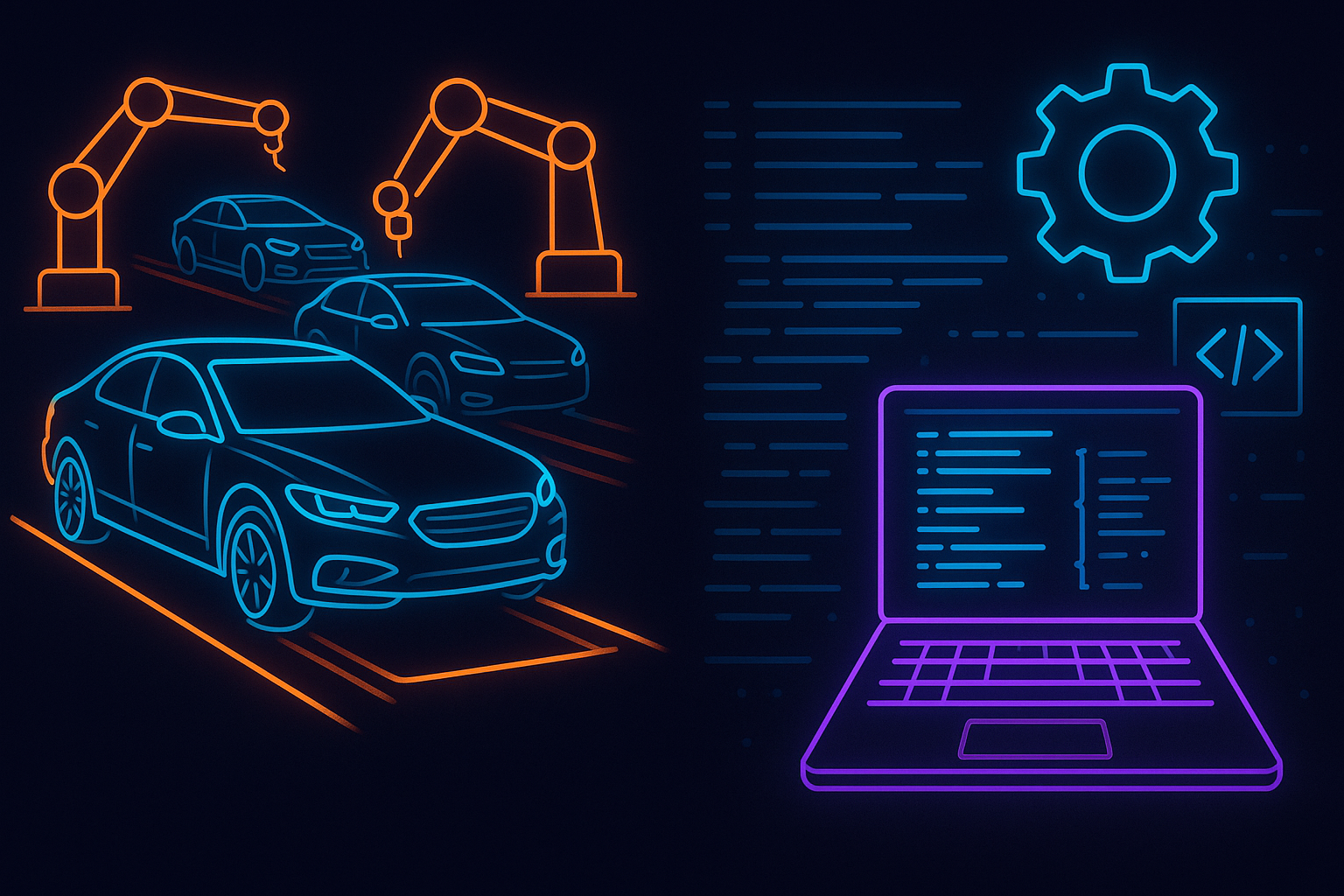
Why Software is Struggling in Germanys Automotive Industry
Why Software is Struggling in Germany’s Automotive Industry
“Cars used to be all about engineering; now they’re running on code. Are we ready for that?”
1. The Management Gap
- Traditional Backgrounds: German CEOs often come from business administration or mechanical engineering.
- Missing Tech DNA: Unlike Silicon Valley leaders, they rarely have hands-on software experience.
- Impact: Decisions are shaped by hardware mindset, not by software’s iterative nature.
2. Hardware vs. Software: Different Worlds
-
Development Cycle
- Cars: One-time design → manufacturing → sale
- Software: Continuous development → updates → release
-
Error Correction
- Cars: Physical recall or replacement
- Software: Code patch and deploy
-
Customer Expectations
- Cars: Fixed features post-sale
- Software: Ongoing improvements and new functionalities
3. The New Automotive Battlefield. The New Automotive Battlefield
Software now governs:
- Performance: Adaptive cruise control, electric range optimization.
- Safety: Over-the-air security patches, real-time diagnostics.
- User Experience: Infotainment, voice assistants, connected services.
Without software fluency at the top, strategies remain rooted in assembly-line thinking.
4. Embracing Agile and DevOps
To bridge the gap, automakers must:
- Hire Technical Leaders: Elevate CTOs to executive board seats.
- Adopt Agile Practices: Small teams, short sprints, rapid feedback loops.
- Invest in DevOps: Continuous integration, automated testing, seamless deployments.
- Foster a Software Culture: Encourage experimentation, accept failures as learning.
5. Conclusion
German automakers built a legacy on precision engineering. The next frontier is software craftsmanship. By rebalancing leadership expertise and embracing software-first processes, they can transform vehicles into platforms that improve long after they leave the factory—and stay ahead in the digital race.
6. Original Narrative for Full Context
Germany, historically renowned for its excellence in mechanical engineering, is facing significant challenges adapting to the digital revolution—especially within the automotive industry. The fundamental issue lies in the gap between management expertise and the technological reality of software development.
Unlike Silicon Valley, where top executives often emerge from strong technical backgrounds, German management tends to come primarily from business administration or traditional mechanical engineering fields. While this expertise was highly beneficial during the mechanical-dominated era of automobiles, it becomes increasingly problematic as the industry shifts its primary focus to software.
Traditional automotive processes involve designing, manufacturing, selling, and delivering a finished product. After delivery, the customer pays, and the company’s involvement typically ends, aside from minor after-sales services. This model is successful for hardware but unsuitable for software.
Software development fundamentally differs. It starts with a minimum viable product (MVP) that addresses basic customer needs and immediately hits the market. But the development doesn’t stop there. Companies promise and deliver continuous improvements and additional features after the initial sale. Unlike cars, software products evolve, improve, and expand their capabilities over time. Customers who have already purchased the product continue receiving updates, enhancements, and entirely new functionalities.
Moreover, software allows room for error correction even post-release. Poorly written code can be reviewed, rewritten, and optimized in future updates—something impossible with finished physical products. Cars, once manufactured, remain static; their physical features cannot easily be altered or enhanced without significant effort and cost.
This fundamental mismatch of expectations and expertise creates challenges for Germany’s automotive industry. The traditional, mechanical-oriented mindset struggles to adapt to the agile, iterative, and constantly evolving world of software.
Without bridging this gap—by integrating more technically informed management and adopting a flexible approach—German automakers risk falling behind in an increasingly software-driven automotive world.
— Claudius